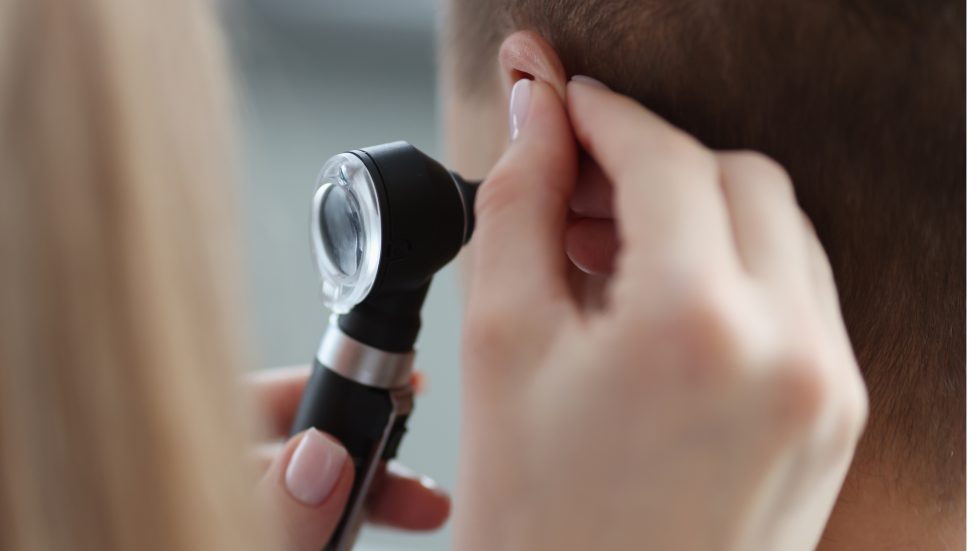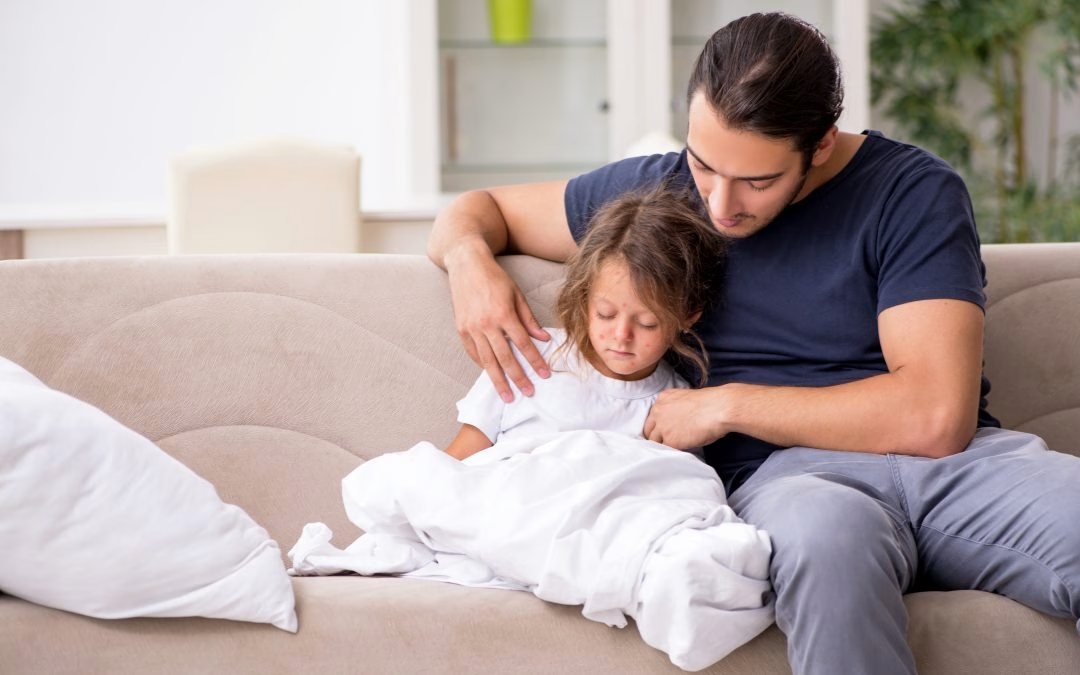
The south Knoxville area is thriving with young families as Knoxville continues to be one of Tennessee’s fastest-growing cities. Couples are establishing roots, contributing to the community, and expanding their families. However, with the joys of parenthood often come the inevitable challenges, such as ear infections in young children. If your child is facing ear pain and discomfort, consider trying simple home remedies for relief and visit AFC Urgent Care for a thorough evaluation. Our team is here to provide the care and support your family needs.
How Can I Ease My Child’s Ear Infection Pain?
As your little one’s adorable ears continue to grow, it’s crucial to be aware that they are more prone to ear infections compared to adults. This susceptibility is attributed to their developing immune system and the increased likelihood of swelling and infection in their drainage pathways, especially following a cold. For children under three years old, the statistics are significant – a five out of six chance of experiencing an ear infection. Given that ear infections rank as the most common ailment in children, second only to the common cold, it becomes imperative for parents to recognize the signs, learn effective ways to manage pain and discomfort, and discern when it’s time to seek professional medical attention.
Different Types of Ear Infection
Ear infections, whether triggered by bacteria or viruses, can lead to painful symptoms, hearing loss, and fever. While many ear infections resolve on their own, addressing them promptly is crucial to prevent potential complications. The nature of the ear infection—whether it’s inner, middle, or outer—determines the appropriate course of treatment:
Outer ear
Often known as swimmer’s ear, this occurs when the ear canal becomes infected, commonly due to bacteria that may be transmitted during activities like swimming.
Middle ear
These involve the infection of the space between the eardrum and the inner ear. Typically, a middle ear infection originates from an upper respiratory infection.
Inner ear
This type is more prevalent in adults, and can result from a middle ear infection spreading to the inner ear. Unlike bacterial infections, these are caused by viruses. Understanding the distinctions among these types of ear infections is essential for effective treatment.
How to Know Your Child Has an Ear Infection
Identifying the source of pain in children, particularly in babies, can be challenging. Be on the lookout for these unmistakable signs that could indicate an ear infection in children:
- Ear pain, especially when lying down
- Tugging or pulling at an ear
- Difficulty sleeping
- Increased crying compared to usual
- Fussiness or irritability
- Trouble hearing or responding to sounds
- Loss of balance
- Fever of 100°F or higher
- Drainage of fluid from the ear
- Complaints of a headache
Staying vigilant and recognizing these signs early on is crucial for ensuring prompt and appropriate care for your child’s well-being. If you observe any of these symptoms, consult with a healthcare professional for a thorough assessment and guidance on the next steps.
6 Ways to Treat Ear Infection at Home
Managing an ear infection at home can provide relief for your child while awaiting professional medical attention. Although consulting a healthcare provider is recommended, these home remedies, utilizing common household items, may help alleviate pain and discomfort:
- Warm Compress: Apply a moist compress over your child’s ear for approximately 10 to 15 minutes to reduce pain.
- Over-the-Counter Pain Medication: Administer age-appropriate over-the-counter pain medication to address fever accompanying the ear infection. Ensure you use the correct dosage for your child’s age. For babies older than 6 months, acetaminophen can help relieve pain and fever.
- Fluid-Drying Ear Drops: If dealing with an outer ear infection, consider using readily available fluid-drying ear drops, which can be purchased at retail stores.
- Warm Oil: If there is no fluid drainage and a ruptured eardrum is not suspected, place a few drops of room temperature or slightly warmed olive oil or sesame oil in the affected ear.
- Quality Sleep and Rest: Adequate sleep and rest play a crucial role in strengthening the immune system. However, avoid sleeping on the infected ear for comfort and to prevent exacerbating the condition.
- Avoid using a Q-tip to clean your ear canal, as it poses the risk of accidentally rupturing your eardrum. This caution is particularly crucial if you have an ear infection, as using a Q-tip can inadvertently push the infection deeper into the ear, potentially causing more damage. Opt for safer methods of ear care and consult with a healthcare professional if you have concerns about ear hygiene or infection.
When Should I See a Doctor?
If ear infection symptoms persist beyond a few days, consult a doctor to discuss treatment options and prevent complications. Seek medical attention if your child has a high fever, fluid or blood from the ear, loss of hearing, or frequent ear infections. A healthcare provider may prescribe antibiotics for pain relief and infection treatment.
How to Prevent Ear Infection
Preventing ear infections is key to maintaining good ear health. Since these infections often follow other illnesses caused by viruses or bacteria, taking steps to avoid getting sick can significantly reduce the risk of ear infections. Here are some effective preventive measures for you and your family:
- Wash Hands Frequently: Regular hand washing helps prevent the spread of germs that can lead to illness.
- Get Vaccinated: Ensure both you and your child receive flu shots and other recommended vaccinations. Vaccinations are highly effective in preventing viral and bacterial infections, reducing the likelihood of ear infections.
- Avoid Cigarette Smoke: Secondhand smoke increases the risk of ear infections. Refrain from smoking around your child, and consider quitting for the overall health of your family.
- Limit Pacifier Use: While pacifiers can aid safe sleep and reduce the risk of sudden infant death syndrome, the American Academy of Pediatrics recommends discontinuing pacifier use around 6 months. Extended pacifier use beyond 12 months may increase the likelihood of ear infections.
Ease your child’s ear pain and discomfort caused by ear infections with home remedies that can provide comfort and alleviate accompanying symptoms. If you suspect your child has an ear infection, visit AFC Urgent Care, no appointment needed. Our experienced team can offer guidance, create a treatment plan, and prescribe medication if necessary to ensure the well-being of your loved one’s ears. Keep your child’s ears happy and healthy with our prompt and caring assistance!


